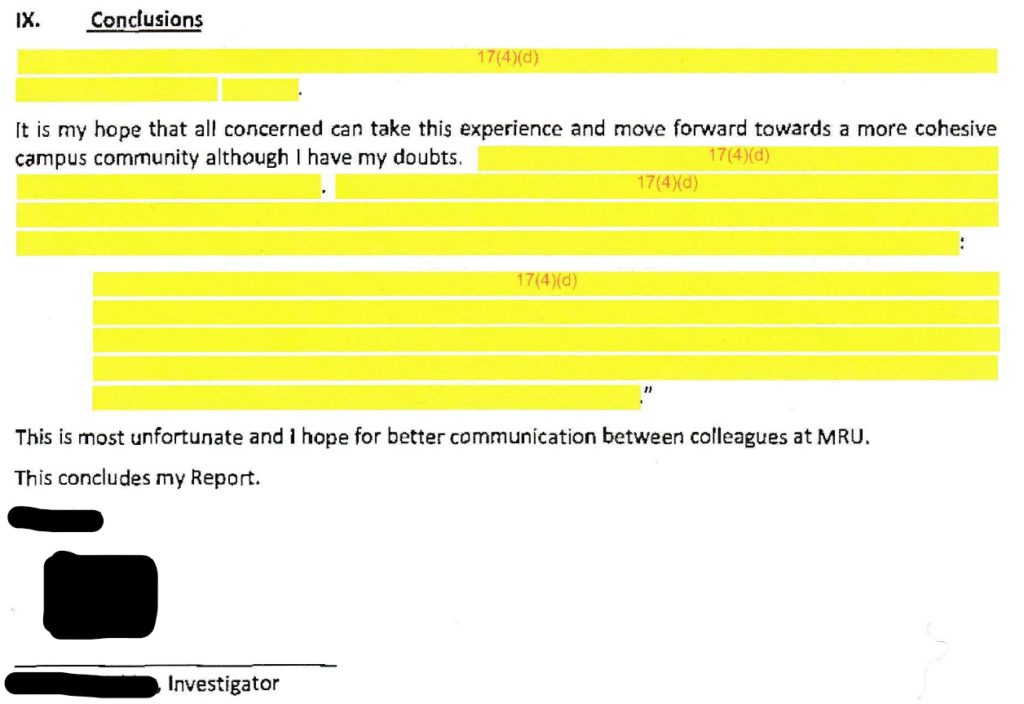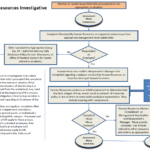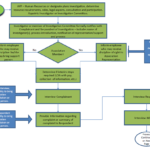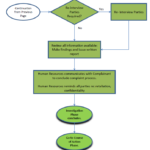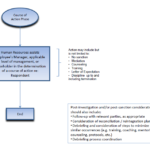Episode 10: MRU’s “Rigorous Due Process”
In statements that it released to the media, Mount Royal University (MRU) not only implied that Dr. Frances Widdowson was fired because she engaged in “harassment or discrimination”; it also hinted that these findings were justified because, at MRU, “decisions are always made following rigorous due process”.
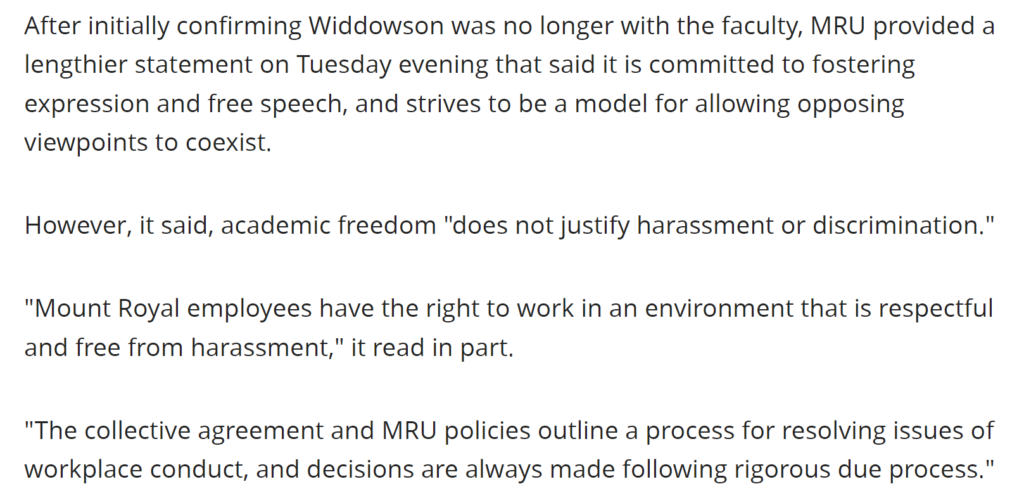
In the first two investigations, the complaints and procedures were not provided, in spite of the fact that Widdowson repeatedly requested them.
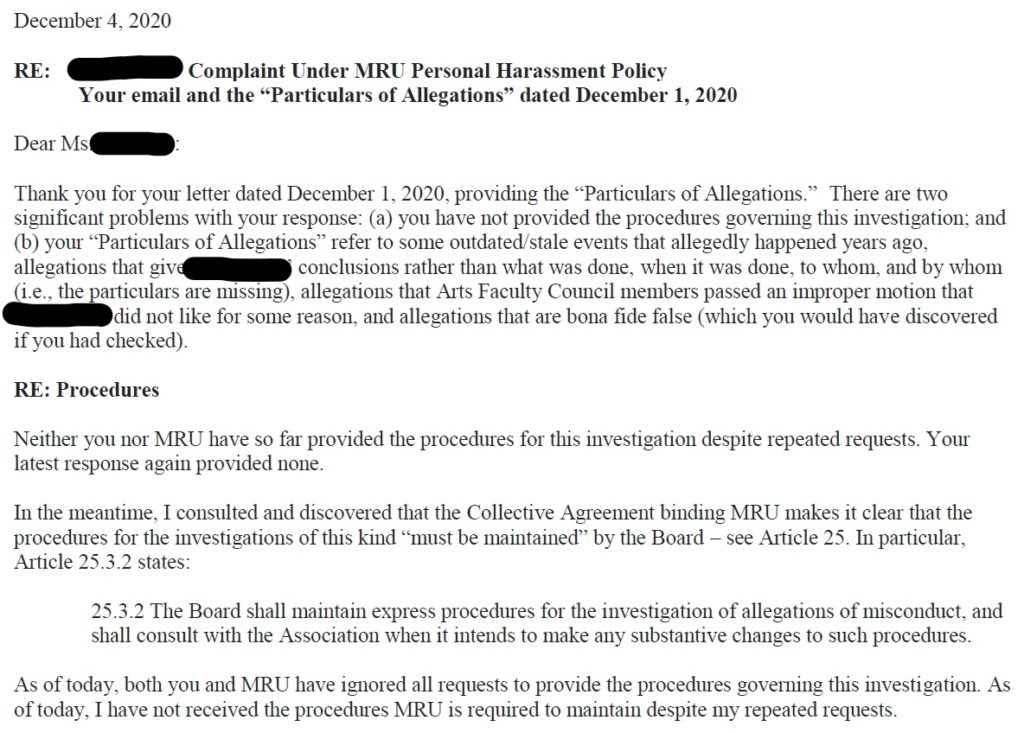
One dated and signed complaint was not provided because MRU’s Human Resources claimed that “[t]he release of the document of complaint could result in issues around procedural fairness for the complainant”. Such an assertion ignored that a Respondent’s ability to receive a complaint is a major requirement of due process, because it enables the person being complained about to be able to respond to the case being made against them.
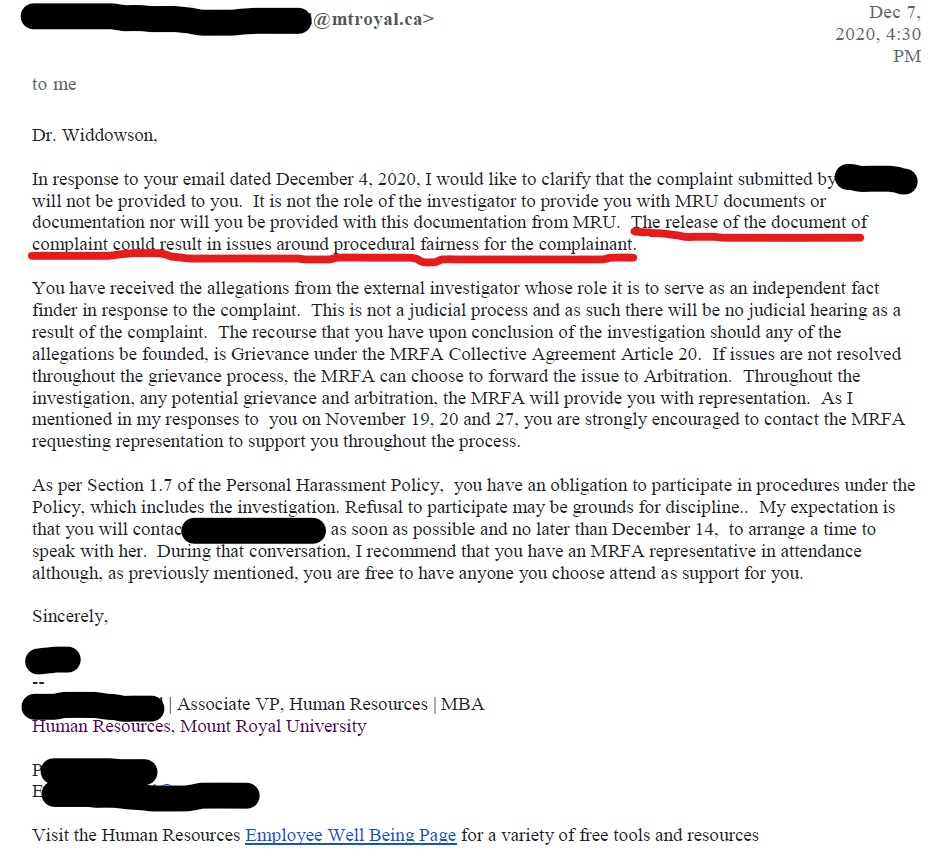
When Widdowson told one of the investigators that it was inconsistent with the principles of natural justice not to receive the dated and signed complaint, the investigator said that she had taken the information that she had received and provided it to Widdowson in as much detail as she had.
When Widdowson did finally receive the complaint, after the investigation was concluded and she had made a freedom of information request to receive the investigation report, it turned out that she was not informed about one allegation made against her, and parts of the complaint were redacted. The most important allegation that was withheld from Widdowson was the accusation that she had demanded “a report regarding the white supremacy culture workshop” that the Complainant, as a Mount Royal Faculty Association (MRFA) board member, had facilitated. Receiving this information would have enabled Widdowson to have made the argument that the complaint appeared to be retaliatory in nature (as it was being made shortly after Widdowson had tried to hold the MRFA executive accountable).

In addition to not receiving complaints, Widdowson was not provided with proper procedures under which personal harassment complaints would be investigated. Instead, a generic internal human resources flow-chart was eventually provided after several requests were made.
This was in contrast to the Human Rights Policy, which did have procedures with natural justice protections. These provisions include 5.2.b “On receipt of the written Complaint” administration will “send a copy to the named Respondent”, 5.2.e – the ability to object to perceived biases of the investigator, and 5.2.i: “send[ing] the report of the findings of fact to the Complainant and to the Respondent”.
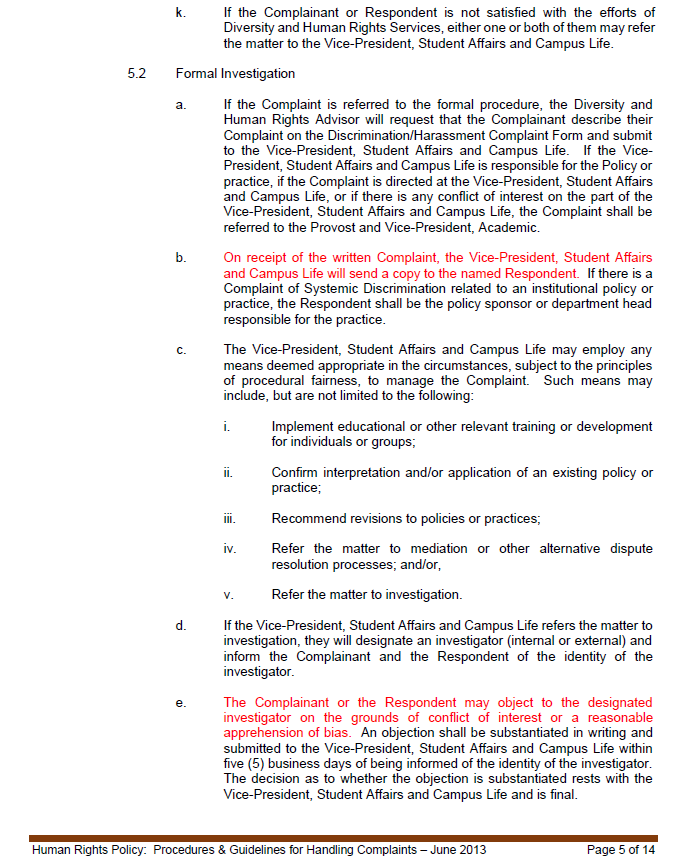
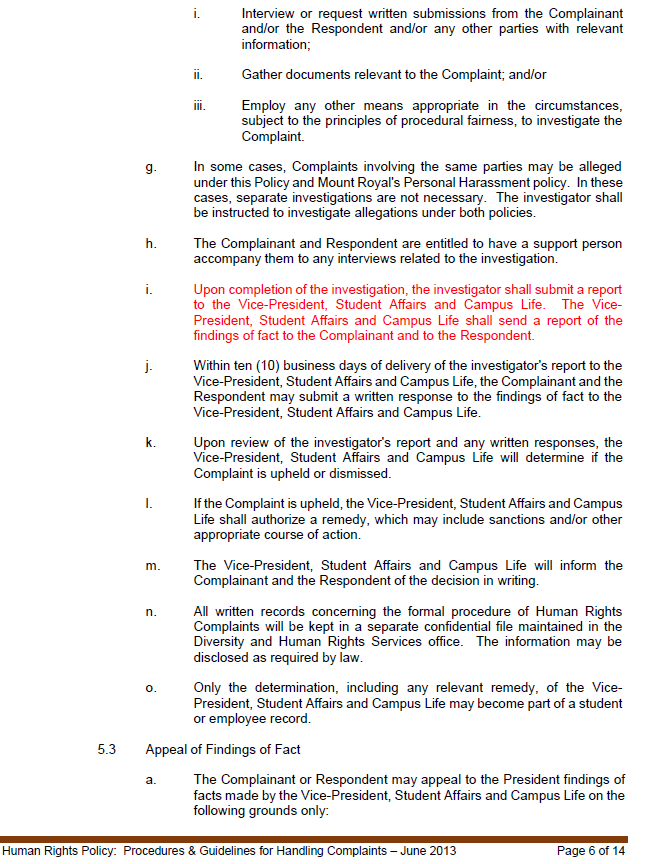
When Widdowson asked to have the Human Rights Policy’s procedures used, so that natural justice protections could be respected in the investigation, she was told by the Associate Vice-President, Human Resources, on January 6, 2021, that “the Human Rights Policy is not an issue in this case…”.

When Widdowson obtained the February 1, 2021 investigation report through a freedom of information request, she discovered that she had also been investigated under the Human Rights Policy. In the report, the investigator asserted that “the Complainant made allegations of harassment and discrimination” and Mount Royal University had retained her “to examine the Allegations in the context of MRU’s Code of Conduct – Employees (the “Code”), the Personal Harassment Policy, the Human Rights Policy…and the law”.

Widdowson was also not able to know the identity of a witness, and so had no way of challenging the genuineness, accuracy and sincerity of their testimony. She had no opportunity to determine whether there was cause for a prejudiced attitude by the witness against her.
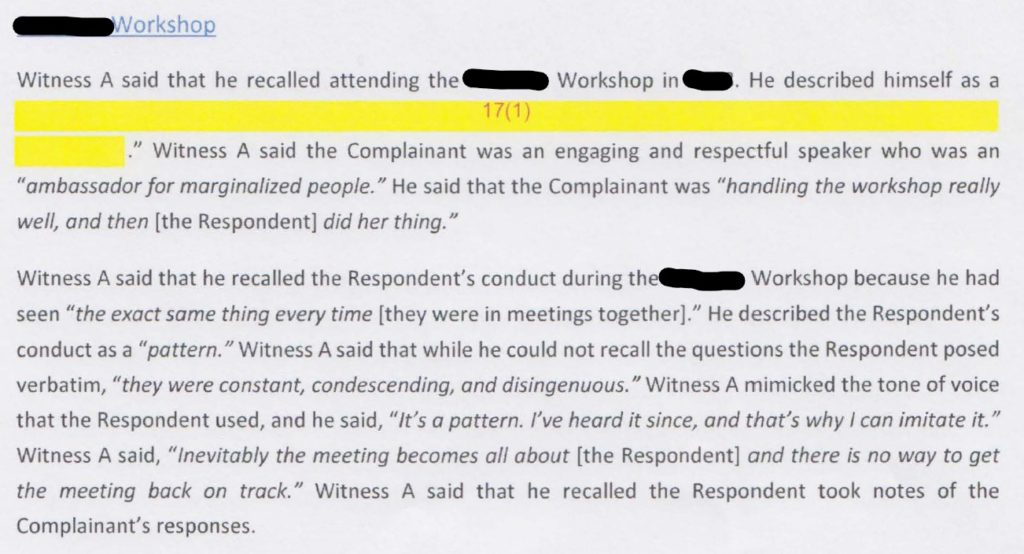
As Widdowson had to receive the investigation reports through freedom of information requests, all contained redactions. Some of these redactions even withheld the legal reasoning of the investigators. In one report, Widdowson could not even see what the “Conclusions” of the investigation were.
